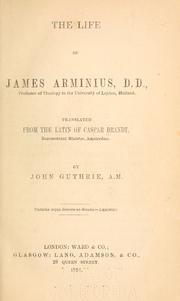


32 Arminius is very light but i dont really about the. It all depends on what you are looking for.You see I personally dont like aluminium bodies and specially the. 32 revolver.It is a seven shot revolver and has an aluminium body which means that if you try to fire a round in the air, it wont.They generally come cheap. Wagner By: James Arminius.Arminius has made a.
Arminius-D Review Free Will Are
The historical development of Arminian theology, however, is not well known. Some were concerned primarily with practical matters, while others were engaged in system-building as they sought to articulate and defend an over-arching vision of God and the world.The story of Arminian development is complex, yet essential for a proper understanding of the history of Protestant theology. Some were broadly committed to catholic and creedal theology, while others were more open to theological revision. While standing together in their common rejection of several key planks of Reformed theology, supporters of Arminianism took varying positions on other matters. More broadly, it was an attempt to articulate a holistic view of God and salvation that is grounded in Scripture and Christian tradition as well as adequate to the challenges of life.First developed in European, British, and American contexts, the movement engaged with a wide range of intellectual challenges. This theological movement was in part a reaction to the Reformed doctrine of predestination and was founded on the assertion that God's sovereignty and human free will are compatible.
Addressing the compendium of this theological tradition requires superlative historical research that spans 400 years, as well as theological and philosophical insight into the vagaries and complexities of theological change. Stanglin and McCall deserve highest commendations for this comprehensive and judicious overview. Stanglin offer a thorough historical introduction to Arminian theology, providing an account that will be useful to scholars and students of ecclesiastical history and modern Christian thought."Drs.
This is a fine work that sets a high standard for future writing in this field." - Richard A. The presentation of trajectories of Arminian thought in America from the eighteenth through the nineteenth century is of particular importance for the retrieval and reception of what has been a largely and unjustly neglected tradition in American theology. In this important work they trace out the patterns of Arminian theology in the continental Remonstrant followers of Arminius and in British and North American Methodist Arminianism, depicting in a careful and compelling manner the rich history of Arminianism. Stephen Gunter, Ph.D., author of Arminius and His 'Declaration of Sentiments': An Annotated Translation with Introduction and Theological Commentary"Stanglin and McCall have produced a worthy sequel to their Jacob Arminius: Theologian of Grace. Stanglin and McCall have removed the excuse for scholars to resort to previously common theological caricatures of Arminius and his successors in all their theological expressions." - W.


 0 kommentar(er)
0 kommentar(er)
